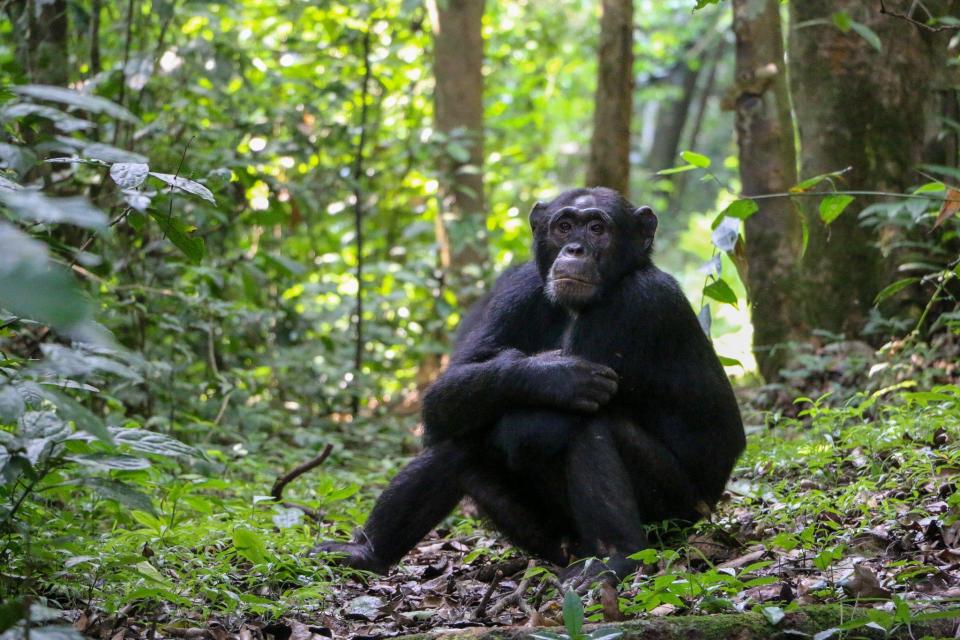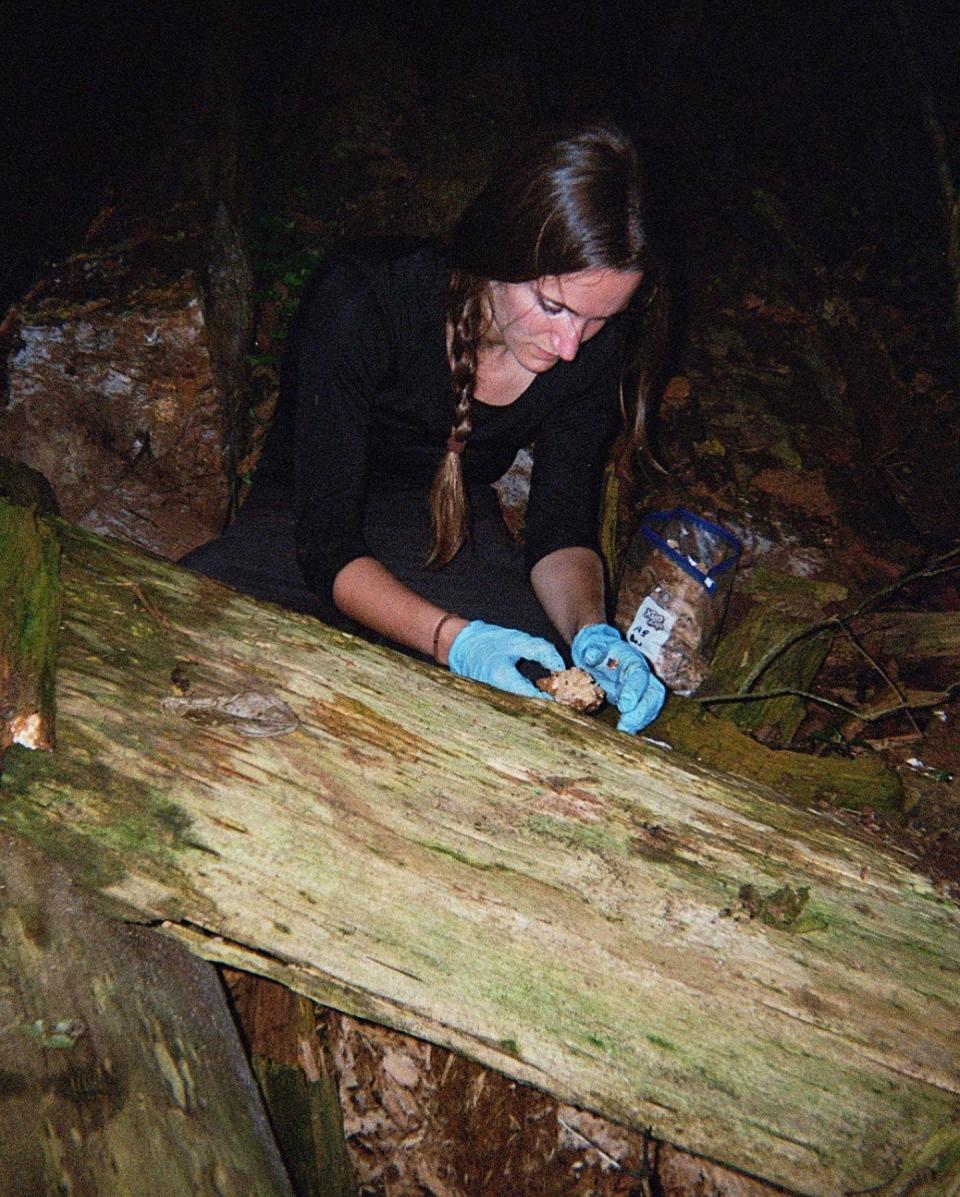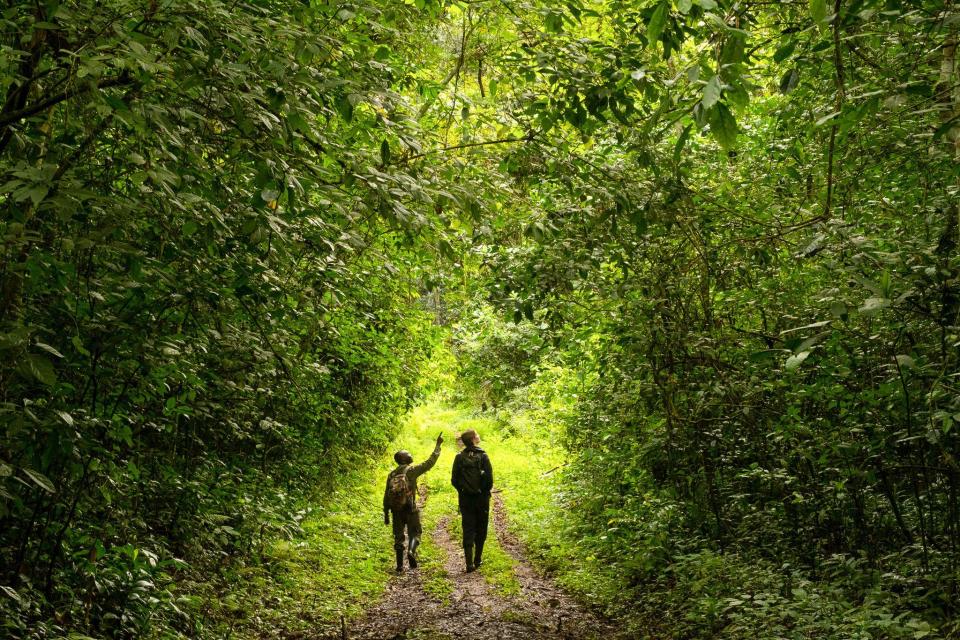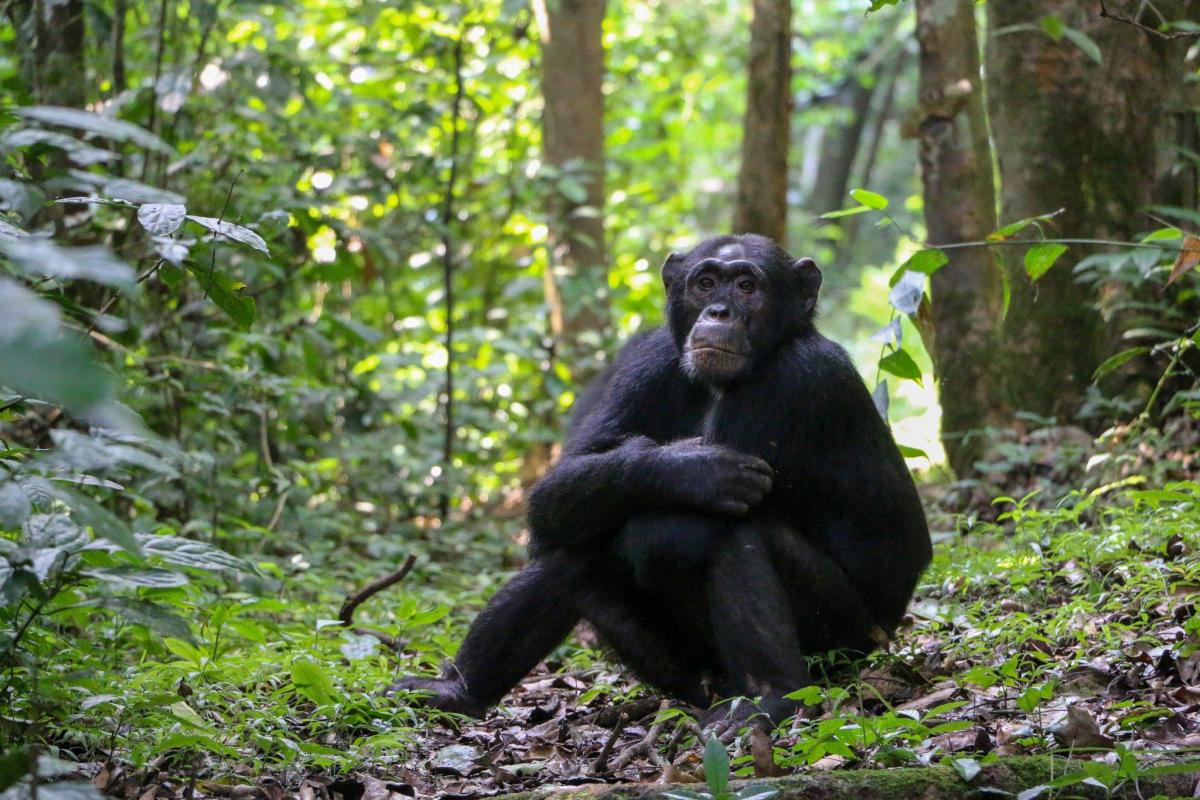Wild chimpanzees consume plants that have pain-relieving and anti-bacterial homes to recover themselves, according to researchers.
They explained their “investigator work” in the forests of Uganda – observing animals that appeared hurt or ill to exercise whether they were self-medicating with plants.
When a hurt animal looked for something particular from the forest to consume, the scientists gathered samples of that plant and had it evaluated. The majority of the plants evaluated ended up to have anti-bacterial homes.
The researchers, who released their findings in the journal PLOS One, believe the chimps might even assist in the look for brand-new medications.

“We can’t check whatever in these forests for their medical homes, lead scientist Dr Elodie Freymann, from the University of Oxford, stated. “So why not check the plants that we have this info about – plants the chimps are looking for?”
Over the previous 4 years, Dr Freymann has actually invested months at a time following and thoroughly observing 2 neighborhoods of wild chimpanzees in Budongo Central Forest Reserve.
In addition to trying to find indications of discomfort – an animal hopping or holding its body in an uncommon method – she and her coworkers gathered samples of droppings and urine to look for disease and infection.
They paid specific attention when a hurt or ill chimpanzee looked for something they do not usually consume – such as tree bark or fruit skin.
“We were trying to find these behavioural hints that the plants may be medical,” Dr Freymann discussed.
She explained one specific chimp – a male – that had actually a severely injured hand.


“He wasn’t utilizing the hand to stroll, he was hopping,” she remembered. While the rest of this animal’s group were relaxing consuming, the hurt chimp hopped away trying to find ferns. “He was the only chimp to look for and consume these ferns.”
The scientists gathered and evaluated the fern – a plant called Christella parasitica, which ended up to have powerful anti-inflammatory homes.
In overall, the scientists gathered 17 samples from 13 various plant types and sent them to be evaluated by Dr Fabien Schultz, at the Neubrandenburg University of Applied Sciences in Germany.
That exposed that nearly 90% of the extracts hindered bacterial development, and a 3rd had natural anti-inflammatory homes, suggesting they might lower discomfort and promote recovery.
All the hurt and ill chimps reported in this research study totally recuperated, Dr Freymann mored than happy to report. “The one who consumed ferns was utilizing his hand once again within the next couple of days,” she discussed.
“Naturally, we can’t 100% show that any of these cases were a direct outcome of consuming these resources,” she informed BBC News.
“However it highlights the medical understanding that can be acquired from observing other types in the wild and highlights the immediate requirement to maintain these ‘forest drug stores’ for future generations.”


